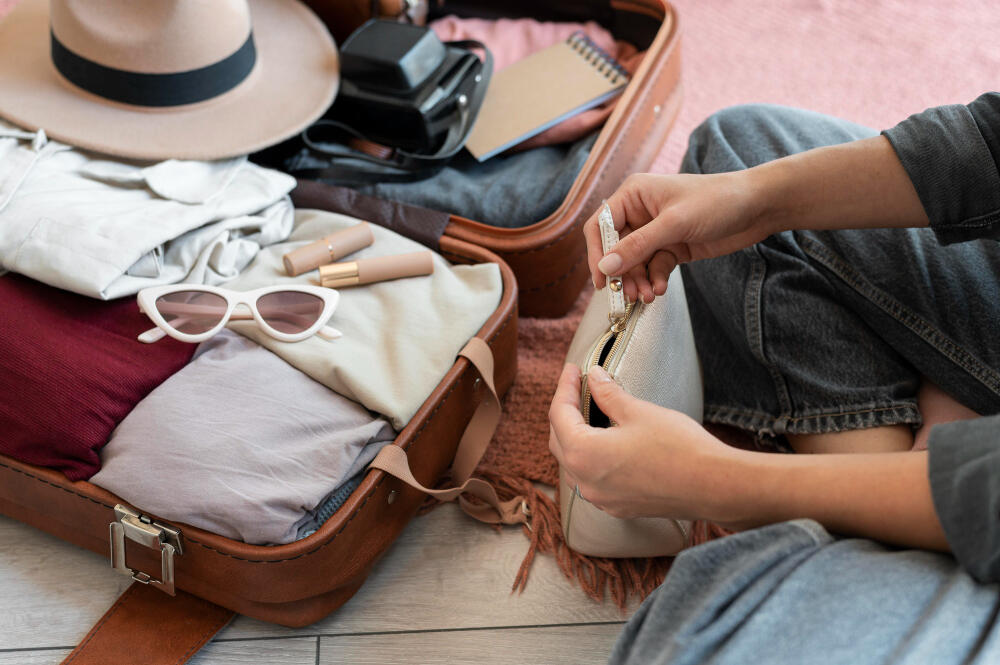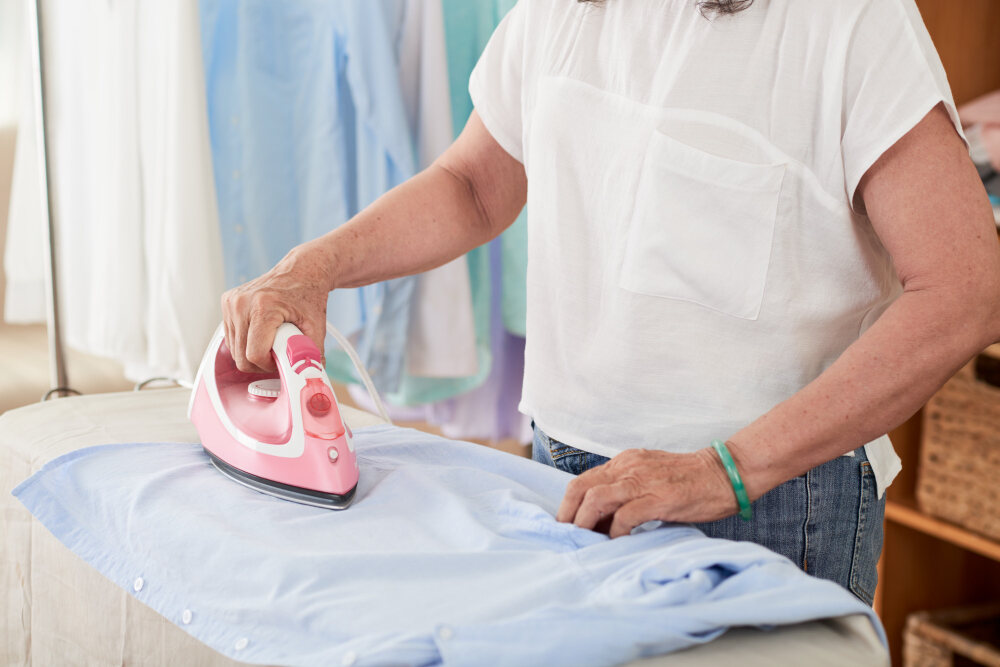
Traveling is usually an adventure and exciting all at once. Whether you visit a new city, or relax at a tropical beach, or venture out into the great countryside on foot, you want to be comfortable and look good while doing so. How can one forget the one thing that really matters-mostly when they get into trouble during the trip? It’s clothes care. Poor packing techniques, an overstuffed luggage, and just not paying attention to maintaining your clothes the right way gives one a headache during the trip to get clothing care tips for travelers.
Introduction
Your wardrobe is one of the utmost essentials that will ensure your comfort during travel. If they are wrinkled, stained, or damaged, you may feel uncomfortable or unprepared and may even be deterred from enjoying experiences. The silver lining is that avoiding common mistakes in clothing care does not require much extra effort, but rather a bit of mindful preparation and some smart tricks clothing care tips for travelers.
1. Overpacking: Why Less Is More
Overpacking is one of the most common mistakes that most travelers make, especially those who like to be prepared for every possible scenario. When taken to extreme proportions, it is tempting to stuff as many outfits in your suitcase as is humanly possible; however, this often backfires. Overpacking presents multiple problems that can make a travel experience more cumbersome:
Wrinkled Clothes: Too many clothes mean piling too many into your suitcase, and when you unpack, many are wrinkled upon one another, a likelihood that your deep wrinkles and creases are even greater; because you won’t likely have an iron or steamer with you, these will usually be impossible to fix without clothing care tips for travelers.
Excess Weight: An overweight suitcase does not only come out as an added physical hassle when you’re navigating airports and transportation; it may also fetch you overweight baggage fees for flights that weigh more clothing care tips for travelers. Many heavy things can indeed get exhausting to lug around, especially if you plan to move many times between several places.
No Space for Souvenirs or New Outfits: With travel, you get to discover new things- so often souvenirs or local fashion finds. If your suitcase is already full, you’ll need to leave some things at home or have to take time out stuffing your purchases inside clothing care tips for travelers.
Don’t Pack Too Much
Plan Your Outfits Ahead of Time:
Rather than packing by “what if” scenarios, plan your outfits according to the activities you know you will do clothing care tips for travelers. Focus on pieces that have multiple uses. For instance: a neutral colored shirt and blouse goes with many different pants and skirts clothing care tips for travelers.
Roll Your Clothes :
Rolling clothing rather than folding is one of the best practices a seasoned traveler can employ, saving space and reducing wrinkles in clothing.
Packing Cubes: Packing cubes serve as not only a way to organize your clothing but also compress the contents of that clothing to get the most out of your suitcase’s volume and keep things properly separated and get clothing care tips for travelers.
Adopt the Capsule Wardrobe:
A capsule wardrobe is a limited wardrobe of well-edited items, each with high wears. The right pieces will ensure that you pack an endless number of outfits without having to overstuff your suitcase.
2. Too Much Detergent: Less is More

If you plan on washing clothes during your trip—be it at a sink in a hotel, at a laundromat, or with a portable washing machine—you’ll need to get the detergent ratio just right. Using too much detergent causes a host of problems:
Residue Build Up: This happens when there is too much detergent used as it doesn’t dissolve well in water, especially during hand washing or in tight washing. This leads to unpleasant stickiness on your clothes, which can irritate sensitive skin.
More rinsing time required: If you are using too much detergent, you will have to spend more time getting rid of the soapy residue from your clothes, which becomes inconvenient for traveling.
Weak Delicate Fabrics Over Time: Overuse of too much detergent leads to damage and weakening of delicate fabrics, which depreciate and wear out fast.
How to Use Detergents Wisely
Use Pre-Measured Pods of Detergent: One of the easiest ways for detergents not to overwhelm is to carry pre-measured pods or sheets of detergent designed for travel. These pods are easy to pack and assure you that you are using the right amount of soap for every wash.
Follow the recommended measure: Whether you are using the liquid or powder type of detergent, always take only the recommended amount. A little goes a long way, especially if you are washing in a small sink or portable washer.
Use Travel-Sized Detergent: Travel-sized bottles of detergent are great for getting control over portions. High-concentration formulas mean you only need a teensy-weensy amount of detergent to get clothes clean. Bonus: it’s perfect in case of an emergency sink-wash.
3. How to Missread clothing care labels in vain: The cost of ignorance
How often do you read the care labels that are stitched into your clothing? Me perhaps rarely, ever. And yet obeying these labels might well save you catastrophes:
Shrinkage: Clothing washed in water that’s too hot will contract material types such as cotton or wool. This can be very frustrating when washing in a hotel laundromat since you can’t even specify water temperature settings.
Color Bleed: Some fabrics, particularly darker or brighter colors, bleed when washed with other items. If the tags specify cold-water washes or separating colors, failure to heed that warning can mean color transfer, wasting multiple pieces in a single wash cycle.
Fabric Damage: There are some fabrics that are just too delicate-cotton, silk, linen. Lace-being washed the wrong way can cause them to rip, fray, or weaken.
How to Read and Follow Care Labels
Give yourself the time to read labels before packing: Preview your clothes prior to a trip and read the care labels. Now’s the perfect opportunity to pack clothes that are easy to take care of while you’re traveling. For example, avoid clothes that require dry cleaning or can’t be ironed. If you will not have access to ironing services during your trip.
Separate clothes by care instructions: If you are washing your clothes during the trip, separate them according to the care labels. Mix delicate items with heavy fabrics like denim; therefore, wash whites first from the colors.
Hand-wash Delicate Items: If you are washing delicate goods, you should hand-wash them in the bathroom sink using mild detergent. Cold water only. Do not wring it because it will stretch and even tear.
4. Don’t Plan for Stain Removal: Be Prepared
With traveling comes eating, drinking, and the rest of the outdoor activities around your desired destination. This makes it probable that at some point, you stain your clothes. And when not in a position to plan for quick stain removal, the stains you make on those favorite clothes might end up becoming permanent.
Stains Set Quickly: In hot or humid climates, if food, drink, or dirt stains aren’t treated quickly, they can set in fabrics within hours.
Fewer Options for Laundry Time: While travelling, there is no access to laundry facilities or a stain remover when needed. This will complicate trying to deal with a stain before it dries.
How to Treat Stains When Out
Stain Removal Pen: Stain removal pens are small in size, light in weight, and may be a lifesaver at the moment. Carry one always to treat the stain as soon as the stain is applied to a surface.
Stain Wipes: Another best alternative is pre-packaged stain wipes. These stain wipes are portable and can be applied directly onto fabrics and remove stains without water.
Know Your Stain Treatment Basics: Know what kind of treatment your particular stain requires.
5. Not Using Laundry Services: Convenience at Your Fingertips
On longer trips, specially exceeding a week, dirty laundry cannot be avoided. Some travelers resort to washing all of their clothes by hand or wait until they get home; in both instances, this can be less than ideal.
Mountain of Filthy Clothes: If one does not wash regularly, dirty clothes tend to accumulate very quickly. One would leave with fewer clean options and also makes a mess in the traveler’s suitcase.
Odo Pollution: Clothes used in hot, humid, or active environments (such as hiking or sightseeing) will start to smell. The dirt and other stains become increasingly difficult to clean if left long.
How to Get the Most Out of Your Laundry Services
Research Laundry Options Before You Travel: Many hotels offer laundry services; however, it can sometimes become pricey. If you are staying in one place for an extended period, research local laundromats or self-service laundry facilities.
Hotel Laundry Bags: If you do not want to spend your time searching for laundry services, most hotels will be all too willing to give you laundry bags and even promise to wash anything you want the same day. They’re a bit pricier, of course, but who wants to bother when touring?.
Hand-Washing Essentials: Pack a small bottle of detergent and wash essentials like undergarments and socks in the hotel sink. Suspend items overnight to dry in the bathroom or on a portable clothesline.
6. Packing Incorrectly: Organize for Success
Poor packing will create a range
From crumpled clothes to shredded toys, these are some common problems you must be considered beforehand when packing to avoid:
Wrinkles and Creases: Just throw in clothes without any concern for folding or how they’ll be placed inside. The outcome becomes irreversible wrinkles.
Your problems with finding whatever you need: Packing with no plan in place is quite impossible to find things; you just start rummaging through your entire suitcase and wrinkle the clothes in the process.
Damaged Items: Fragile stuff like fabrics, shoes, or accessories will get damaged easily if heavier items accompany it in the same space.
Pack smartly
Use packing cubes: This helps you pack your clothes and other things into the categories to save space and keep your suitcase organized. Packing cubes also prevent wrinkling that occurs because of your clothes inside the bag moving about.
Roll, Not Fold: Roll your clothing instead of folding it. Rolling will not wrinkle and becomes a good space saver. It’s most effective for items that are softer in nature, like t-shirts, jeans, and workout clothes.
Shoes and Accessories: Place shoes in separate areas so that they do not soil clothes or spoil the latter. For fragile accessories like jewelry, keep them in small cases so that they are not tangled or misplaced.
7. Not Accounting for the Weather: Be Ready For It
With the weather so precarious, it could easily spell disaster if not considered at all while packing; thus, some clothing care issues would crop up when you are on your trip. From humidity and moisture to extreme heat or cold. The weather surely is one of those factors that most potently influence how clothes behave in the course of travel.
Humidity: In the tropics or humid climate, clothes turn musty if your luggage has not been well aired out. Damp may also cause mildew and mould in your suitcase.
Extreme Heat: Long-period heat influences the fading impact of some clothes and how badly they can damage. Stains and smells become fixed if clothes are delayed from being cleaned.
For those colder climes, layering is the key, but bulky sweaters and jackets take up a lot of room in your suitcase. And besides, some wet snow or rain can hurt certain kinds of leather or suede fabrics.
Packing for Weather Conditions
Most people pack waterproofed bags or silica gel packing cubes if going to a wetter climate. This helps ensure clothes won’t be drenched in your suitcase by the end of the trip.
Silica gel packs might absorb moisture, but they can be added into a suitcase or backpack to keep clothes from getting damp. They’re also useful in tropical areas.
Use Multi-Functional Clothing: With unpredictable climates, try to pack clothing that can have multiple uses. These include layers that may keep one warm with extreme colds but is breathable in warmer climates.
By the end of your long travel day, you have spent yourself out, and there are no longer clothes that have been really cleaned, but they still need to be aired. Clothes that haven’t had a chance to breathe out can result in appalling odors and mildew:
Sweat and Smells: Your clothes may look clean, but body oils, sweat, and everything in the environment smells waft up. Lumping all these on your luggage trap smells that are hard to get rid of later.
Mildew: Frustration will be yours should you pile on clothes slightly wet, owing to sweat, rain, or a wet environment, triggering mildew, especially in a warm and damp locale and marketing.
How to Deodorize Clothes for Travel
Hang up your clothes overnight-Hang whatever clothes you wear during the day in a good well-aired space so that to let them air. Most hotel rooms are provided with hangers or drying racks, or you can bring a portable clothesline to hang items in your bathroom.
Fabric Fresheners: A small bottle of fabric freshener spray may be quite handy in getting the smell out of clothes that aren’t particularly dirty but are smelling less than fresh. This may be particularly helpful when you can’t get your clothes washed for a few days. Which is more likely if you’re travelling.
Dry Damp Clothes Before Packing: When you get wet in the rain or simply get hot and sweaty. Dry your clothes completely before packing them away. Better to lay those clothes out in your motel room for a few more hours than to take a chance on the onset of mildew inside your luggage.
9. No Drying Time: Patience is a Virtue
When doing laundry while traveling, it should be dried completely before putting it back in the luggage. Packed damp or wet clothes result in multiple problems:
Mildew and Odors: Damp clothes packed away without drying emit a very pungent, musty smell. Mildew may be present within hours in warm or humid environments.
Damage to Other Clothes- Wet clothes placed between dry ones could transfer moisture. Thereby affecting the complete set in your wardrobe with an unpleasant odor.
How to Ensure Clothes Dry Thoroughly
Use a Quick-Dry Towel If you want to speed up the drying process, take your wet clothes, roll them in a quick-dry towel, and then gently press. The towel will absorb much of the moisture so that your clothes dry faster.
Hang clothes outside in sunlight: Hang your clothes to dry outside or near a window if you possibly can. Sunlight kills bacteria and makes drying so much faster.
Leave more time. Should you plan to use the sink in the hotel to hand-wash clothes. Then make sure you have some extra time to let the clothes dry out. Clothes that do not have a proper drying time will create mildew issues and bad smells with your packed clothes.
10. Using Hotel Irons Without Checking Them First

Most of the travelers iron their clothes in hotels as an effort to freshen them up. However, many people do not have any checking on the irons used that can cause serious clothing mishaps. Hotel irons may be used once and left under one’s luggage for some days-then be used again because they are never cleaned, causing such problems:
Left Over Residue: Maybe someone ironed using synthetic material and melted substance or dust remained. If not cleaned, this left over could combine with your fabric and stain or damage it further.
Burned Woven Fabrics: Hotels can be of different natures and inconsistency in their iron’s temperature. Others get far too hot for very delicate fabrics that may be burnt. While others do not heat at all to iron out wrinkles.
How to Use Hotel Iron Safely
Check the Iron First: Just before using an iron, take a minute or two to check the surface of the iron. Clean it with a damp cloth if you find anything of residue or dirt appearing on it before ironing your clothes.
est on a Small Area: If you are concerned about the high heat your iron is giving off. Test it out on some inconspicuous area of your clothing, ensuring the iron will not burn or damage your fabrics.
Use Towel as a Buffer Use a extremely thin Towel or cloth to act like a buffer between iron and your clothes when you want to iron delicate pieces. That is a manner that stops the direct hitting of heat from the iron. So you do not risk burning or scorching your clothes.
Conclusion: Dare to enjoy wrinkle-free and fresh clothing while traveling
While travel is supposed to be fun and enriching, clothing care can easily fall by the wayside. Avoiding some common clothing care mistakes can keep your wardrobe looking great all trip long. You will look and feel your best no matter where your travels might take you.
From packing smart and learning stain-tacking techniques on the go to preparing for other challenges like bad weather, these tips will help you be on top control of your clothes. Traveling with confidence and having fresh. Clean clothes ready for whatever your journey holds will be a guarantee by following this guide.
Remember, just a little extra effort will be rewarded, and when planning. You will enjoy all the fun of traveling without worrying about your outfit. Signup with Fabklean and get all your doubts cleared.

What are some unconventional methods for keeping clothes wrinkle-free and stain-free while on the go?”,
“refusal